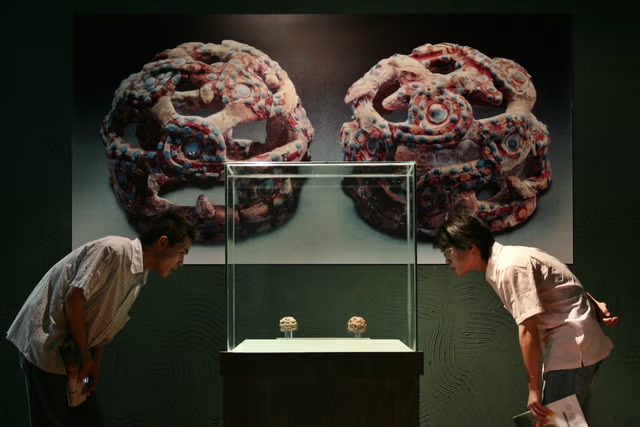Your support helps us to tell the story
Support NowOur mission is to deliver unbiased, fact-based reporting that holds power to account and exposes the truth.
Whether $5 or $50, every contribution counts.
Support us to deliver journalism without an agenda.

Louise Thomas
Editor
A British computer scientist has been awarded this year’s Nobel Prize in Chemistry, the Royal Swedish Academy of Sciences has announced.
Sir Demis Hassabis, who is the chief executive and and co-founder of London-based artificial intelligence start-up Google DeepMind, received the honour alongside American John Jumper, a senior research scientist at the company, for solving one of biology’s biggest mysteries – how protein structures form.
They share the prize with David Baker, of the University of Washington, who pioneered the method for designing proteins.
Heiner Linke, chairman of the Nobel Committee for Chemistry, said: “One of the discoveries being recognised this year concerns the construction of spectacular proteins.
“The other is about fulfilling a 50-year-old dream: predicting protein structures from their amino acid sequences.
“Both of these discoveries open up vast possibilities.”
In 2020, Sir Demis and Dr Jumper presented AlphaFold2, an AI model the company had developed to help predict the complex structures of proteins.
Since the 1970s, scientists around the world have been trying to work out how a protein folds into a unique three-dimensional shape.
With its help, they have been able to predict the structure of virtually all the 200 million proteins that have been identified.
Since their breakthrough, AlphaFold2 has been used by more than two million people from 190 countries.
The hope is that knowing how these proteins work will help pave the way for development of novel drugs to treat diseases such as cancer, dementia and even Covid-19.
Sir Demis was born in London in 1976.
A child chess prodigy, he designed and programmed a multimillion-selling game called Theme Park in his teens before going to Cambridge University.
He received his PhD in from University College London, with the journal Science listing his research on imagination and memory as one of 2007’s top 10 breakthroughs.
In 2017 he featured in the Time 100 list of most influential people, and earlier this year he was knighted for his services to AI.
Disclaimer: The copyright of this article belongs to the original author. Reposting this article is solely for the purpose of information dissemination and does not constitute any investment advice. If there is any infringement, please contact us immediately. We will make corrections or deletions as necessary. Thank you.



